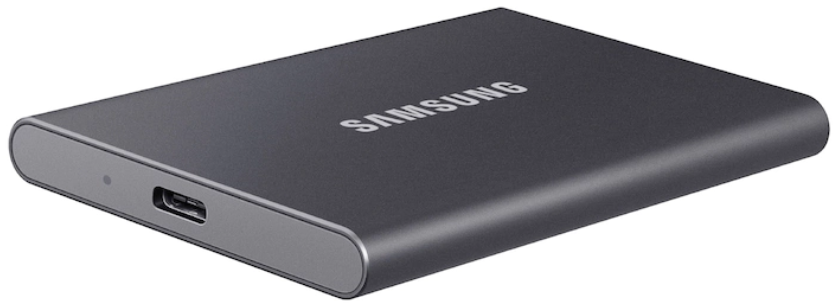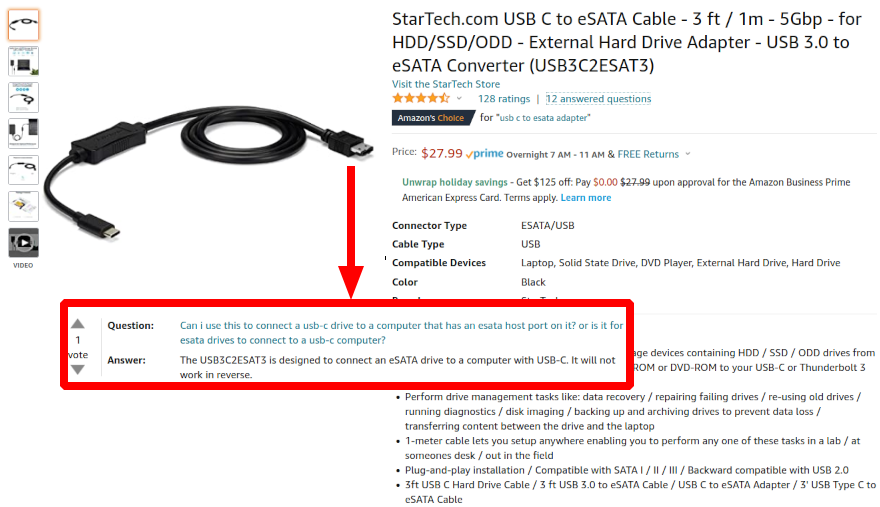Unfortunately, the laptop I'm using only has USB 2.0 ports, which really slows down data transfer rates to this external hard drive:
 Samsung Portable SSD T7 USB 3.2 1TB
Samsung Portable SSD T7 USB 3.2 1TB
Fortunately, the laptop does have an eSATAp port which is capable of very fast transfer rates. So, on Amazon, I searched for a USB C to eSata adapter.
However, none of the ads seem to acknowledge the directional aspects of what I'm trying to accomplish; it is not clear (from reading any of the product descriptions I've read) that any particular product would successfully be able to accomplish transferring data to this external SSD (shown above) from the laptop's eSata port.
I fail to assume that just because something physically plugs two things together that it will function in both directions. This reservation was confirmed, for example, in this answer I found for this product:
Does there exist a solution that does indeed work in reverse?
